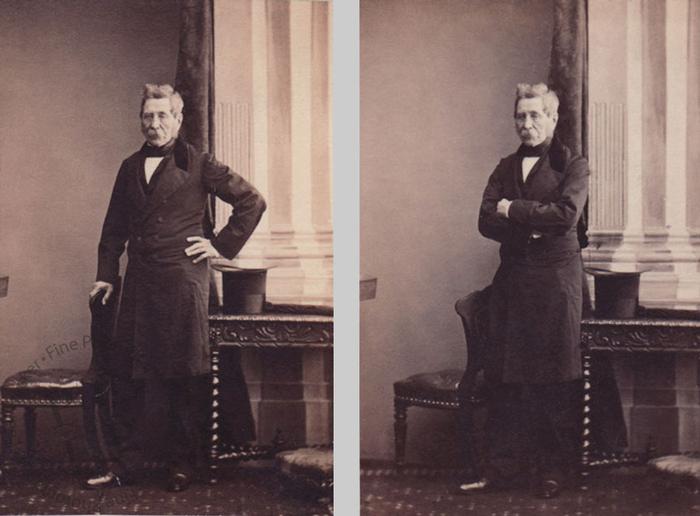General Sir John Burgoyne
(1782-1871)
3 October 1860
Volume 2, page 19, sitting number 1376.
Born on 24 July 1782, John Fox Burgoyne was the illegitimate son of General John Burgoyne and opera singer Susan Caulfield. In 1798, he was commissioned as a Second Lieutenant in the Royal Engineers. He fought against the army of Napoleon I and served in the Pyrenees under the Duke of Wellington, who transferred him to Burgos and later to San Sebastian to particpate in the Seige of Rosetta. In the War of 1812, he fought under General Pakenham as a Lieutenant-Colonel and participated in the Battle of New Orleans.
In 1826, Burgoyne accompanied General Clinton to Portugal. He was appointed a Colonel in 1831. In 1838, he became a Major-General and in 1845 he was named Inspector General of Fortifications. His memoirs prompted the fortification of the English coast.
During the Irish Potato Famine, Burgoyne was active in the efforts to provide relief from mass starvation. In 1851, he was promoted Lieutenant-General. Before the outbreak of the Crimean War, he went to Constantinople to assist in the its fortification and the fortification of the Dardanelles. During the Siege of Sebastopol, he arranged for the bombardment of Malakoff. On his return to England in 1856, he received a baronetcy. In 1865, he was made Commander of the Tower of London and retired in 1868 as a Field Marshal.
Sir John Fox Burgoyne died on 7 October 1871 at 5 Pembridge Square, London, leaving an estate valued at £4000.
'Sir John Burgoyne, the "Father of the British Army," died at half-past eleven on Saturday forenoon. Sir John, who was in his ninetieth year, had never wholly recovered the shock of the loss of his only son, Capt. Hugh Burgoyne, on board the Captain last year. Until a recent period, few of the physical or mental signs of advanced old age were apparent in the venerable soldier' (Manchester Evening News, 9 October 1871).

